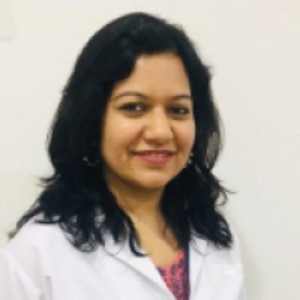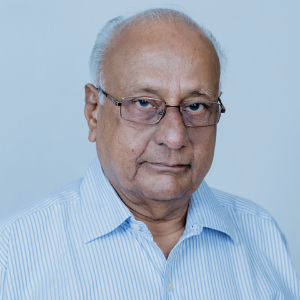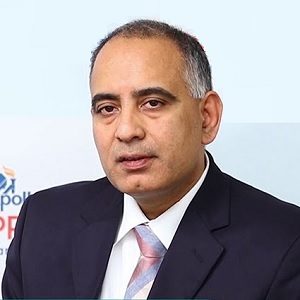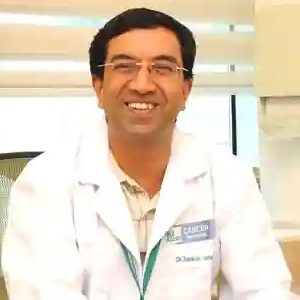Best Doctors in India for Sarcoma Treatment
- Medical Oncologist, Gurugram, India
- Over 20 years’ experience
Profile Highlights:
- Dr. Randeep Singh has trained extensively in managing cancer patients at the prestigious Tata Memorial Hospital, Mumbai.
- After spending over 20 years in this field, he has a vast experience in breast, lung, and gastrointestinal cancers.
- Throughout his career, Dr. Randeep Singh has had over 40 publications in national and international journals.
- He has also attended and presented various scientific papers in national and international journals.
- Surgical Oncologist, Gurugram, India
- Over 10 years’ experience
Profile Highlights:
- Dr. Shilpi Sharma is a highly experienced surgeon and oncologist who has previously worked in prestigious institutions such as Tata Memorial Hospital, and National Cancer Institute.
- Throughout her career, she has conducted various high-quality research in the field of head and neck cancers. Dr. Shilpi Sharma has also been part of various randomized and nonrandomized trials and has also been involved in clinical and translational research.
- She is also a member of ICMR guideline committee which formulated the ICMR guidelines on tongue cancers.
- Medical Oncologist, Chennai, India
- Over 40 years’ experience
Profile Highlights:
- Dr. Bellarmine Vincent Lawrence is a well-known Medical Oncologist in South India with a specialization in the treatment of breast cancers.
- He provides overall both pre and post-operative treatment of breast cancer that includes diagnostic, therapeutic as well as palliative care.
- He also provides services for other types of cancers including blood cancer and does procedures like Chemotherapy for the treatment and biopsies for the detection of cancer.
- Medical Oncologist and BMT Specialist, Chennai, India
- Over 25 years’ experience
Profile Highlights:
- Dr. T. Raja is a Medical Oncologist from the Tamil Nadu state with 25 years of know-how in this field.
- He has proficiency in Cancer Screening, Chemotherapy, PICC Line Insertion, Bone Marrow Transplantation, Stem Cell Transplantation, Pap collection, lymphoma, Renal Cell Cancer management, and Head and Neck Tumor.
- Dr. Raja was the Principal Investigator for several clinical studies, a published author for journals, and a teacher.
- Medical Oncologist, Chennai, India
- Over 28 years’ experience
Profile Highlights:
- Dr. Sankar Srinivasan is one of the top Medical Oncologists in India with proficiency in cancer management for about 28 years.
- He got certified in Internal Medicine, Medical Oncology, and Hematology from American Board to enhance his skills.
- Dr. Srinivasan is placed in the best 10% of the Hematologists boards.
- He is an active member of several International Medical Association Boards.
Best Hospitals in India for Sarcoma Treatment
CARE Hospitals, Hyderabad
- City: Hyderabad, India
Hospital Highlights:
- CARE Hospitals were established in the year 2000, by CARE Group.
- The multispecialty hospital has 435 beds, including 120 critical care beds, with an annual inflow of 180000 outpatients and 16,000 in-patients.
- The hospital provides specialty medical services in Cardiology, Cardiothoracic Surgery, Pediatric Cardiology, Pediatric Cardiothoracic Surgery, Neurology, Neurosurgery, Nephrology, and Urology.
- The hospital has the first dual source, 128 slice CT scanner (for high precision cardiac imaging) – the first of its kind in south India.
- The hospital offers a wide range of accommodation facilities for the convenience of its varied patient base, ranging from general wards to super deluxe rooms.
Fortis Hiranandani Hospital, Mumbai
- City: Mumbai, India
Hospital Highlights:
- Fortis Hiranandani hospital was established in 2007.
- The hospital is an advanced tertiary care, multi-specialty hospital equipped with 149 beds.
- The hospital is equipped with a super ICU to provide emergency medical care to critically ill patients.
- The hospital is NABH accredited.
- The critical care facility in the hospital is augmented with the state-of-the-art facilities that facilitate speedier diagnosis and efficient monitoring.
- The hospital provides specialty medical services in cardiology, orthopedic science, pediatric science, neurology, diabetic care, urology, nephrology, ENT, obstetrics, gynecology, cosmetic surgery, bariatric surgery, neuro and spine care.
Fortis Hospital, Anandpur, Kolkata
- City: Kolkata, India
Hospital Highlights:
- Fortis Hospital, Anandapur, Kolkata is a world-class super-speciality equipped with the latest technologies in the medical world.
- The hospital is NABH accredited.
- This state-of-the-art facility specializes in cardiology and cardiac surgery, urology, nephrology, neurosciences, orthopaedics, digestive care, emergency care and critical care.
- The hospital, governed by integrated Building Management System (IBMS), has a pneumatic chute system, for quick vertical and horizontal transportation between floors, facilitating speedy transfer of patient specimens, documents, reports, and medicines to the concerned departments.
- The hospital also has a nephrology department with over 28 advanced dialysis units.
Fortis Hospital Banerghatta, Bengaluru
- City: Bengaluru, India
Hospital Highlights:
- Fortis Hospital Bannerghatta, Bengaluru was established in 2006.
- The hospital is a 276 bedded multi-specialty tertiary care facility.
- The hospital specializes in cutting-edge medical technology and dedicated patient care services.
- The hospital is equipped with state-of-the-art technologies like trans-radial angioplasty, trans-abdominal cardiac surgery, and computerized TKR navigation surgery.
- The hospital provides specialty medical services in cardiology, cardiac surgery, orthopedics, neurology, neuro-surgery, GI, and Minimal Access Surgery (MAS).
Gleneagles Global Hospital, Parel, Mumbai
- City: Mumbai, India
Hospital Highlights:
- Gleneagles Global Hospital The 450-bed facility comprises of 17-stories, housing state-of-the-art infrastructure, and advanced medical care facilities.
- The hospital offers end-to-end clinical, surgical, and diagnostic services. It is equipped with a team of eminent medical professionals aided by qualified nurses and medical staff
- The Hospital offers advanced Endoscopic procedures, Hepatobiliary and Liver Surgeries, Surgical and Medical Gastroenterology, Bariatric Surgery, and Robotic surgery.
- The hospital is a center of excellence for Orthopedics, Joint Replacement, Knee Replacement, and Hip Replacement surgery.
Jaypee Hospital, Noida
- City: Noida, India
Hospital Highlights:
- Jaypee Hospital is the flagship hospital of the Jaypee Group.
- This hospital has commissioned 525 beds in the first phase and has been planned and designed as a 1200 bedded multi-specialty facility.
- It holds the accreditation of the NABH and NABL.
- The hospital has state-of-the-art infrastructure equipped with the latest technologies and modern equipment like 64 Slice PET CT, Dual Head 6 Slice SPECT CT, Gamma Camera, and Da Vinci Robotic Surgery for comprehensive robotic surgical solutions.
- It has special Centers dedicated to the major specialties to provide hassle-free and high-quality clinical care.
Manipal Hospital, Dwarka, Delhi
- City: New Delhi, India
Hospital Highlights:
- Manipal Hospitals, Dwarka, is a super-specialty hospital in Dwarka, New Delhi, which is a part of Manipal Hospitals Group.
- The hospital aims to provide the best treatment on par with international standards at a fraction of the cost.
- Equipped with 380 beds, the hospital is also one of the new age hospitals which are equipped fully with state-of-the-art infrastructure, cutting-edge technology as well as the latest and advanced clinical practices. The hospital also has 13 modular Operation theatres with 118 beds which are solely meant for critical care.
- The hospital comprises internationally acclaimed doctors and highly professional and experienced hospital and medical staff who are able to provide preventive, therapeutic, and diagnostic services all under one roof.
Pushpawati Singhania Hospital & Research Institute, New Delhi
- City: New Delhi, India
Hospital Highlights:
- Established in 1996, Pushpawati Singhania Research Institute is one of the top hospitals in the NCR region, as well as one of the top facilities in India for gastroenterology. The hospital is one of South Asia’s first institutes in medical and surgical treatment for diseases related to digestion.
- The hospital is equipped with state-of-the art facilities coupled with the latest equipment as well as renowned consultants from various parts of India as well as other parts of the world.
W Pratiksha Hospital, Gurgaon
- City: Gurugram, India
Hospital Highlights:
- W Pratiksha Hospital, Gurugram, is one of the best hospitals in the NCR region. It is also a top hospital in India for IVF. Since its inception, the hospital has performed over 5500 successful IVFs. The hospital also specializes in gynecology.
- With over 20 years of experience in providing quality healthcare, the hospital is known as one of the most trusted and valued health providers in India.
- Equipped with world-class medical facilities and advanced technology, the hospital’s doctors and clinicians also have a track record of delivering excellent results. The hospital is also known for focusing on preventive well-being as much as on curative treatment.
- The hospital has earned the trust of its patients, by providing the best available treatments at affordable costs.
Narayana Superspeciality Hospital, Gurugram
- City: Gurugram, India
Hospital Highlights:
- Situated near DLF Cyber City, Gurugram, Narayana Superspecialty Hospital is one of the top medical facilities in the Delhi NCR region, catering to the needs of the people. Known for its commitment to quality medical care and patient service, the hospital is a state-of-the-art facility with planned and well-equipped sections, which includes a spacious OPD area as well as comfortable patient rooms.
- It is the closest super-specialty hospital from Indira Gandhi International Airport towards Gurugram, and also the nearest super specialty hospital from DLF Cyber City. It is also close to major residential areas in Gurugram.
- It is part of the renowned Narayana Health Group. Established in 2000, by Dr. Devi Shetty, a renowned cardiac surgeon, it has grown to be one fo India’s leading healthcare groups.
Sarcoma
Sarcoma is a type of cancer that may occur in several different parts of your body. There are over 70 different types of sarcoma, such as angiosarcoma, chondrosarcoma, Ewing sarcoma, etc.
Soft tissue sarcoma affects tissues that support or connects the systems of your body. Soft tissue might appear in fat, muscle, deep skin tissues, blood vessels, tendons, cartilages, and ligaments. Meanwhile, bone sarcoma or osteosarcoma is a type of bone cancer.
Sarcoma is rare in adults, and according to the American Society of Clinical Oncology, it accounts for one percent of all cancers among adults. This cancer is more common among children and accounts for 15 percent of all childhood cancers.
Signs & symptoms
If you have sarcoma, you may show the following signs and symptoms:
- Bone pain
- A lump felt through the skin that may be painful
- Weight loss
- A broken bone occurring unexpectedly, such as with a minor injury or without any injury
- Abdominal pain
Causes & risk factors
In most cases, the exact causes of sarcoma are unknown. They generally occur sporadically, with little or no family history.
However, according to researchers, there are a few possible risk factors.
- High doses of radiation: If you have previously undergone radiation therapy for cancer, it can increase the risk of developing a soft tissue sarcoma later.
- Exposure to chemicals: Exposure to certain chemicals such as vinyl chloride, dioxins, and phenoxyacetic herbicides can also increase the risk, though there is more evidence required to confirm this.
- Genetic conditions: Genetic factors might play a role as well. People suffering from syndromes such as neurofibromatosis and tuberous sclerosis generally appear to have a higher risk of sarcoma.
- Human herpesvirus 8: Kaposi’s sarcoma is the only type of soft tissue sarcoma having a clearly known and defined cause.
Diagnosis
Your doctor is likely going to recommend multiple tests and procedures in order to diagnose the condition as well as determine its stage. Some of these tests and procedures include:
A physical exam

Your doctor is likely going to perform a physical exam to understand your symptoms properly. This will allow him/her to look for other clues that might help with the diagnosis.
Imaging tests
Depending on your condition, different imaging tests might be right for you. Tests such as X-rays are better for identifying bone problems. Other tests like MRI, are better for identifying connective tissue problems. Other imaging tests that your doctor might need to use can include CT, ultrasound, bone scans, and positron emission tomography (PET) scans.
Biopsy

A biopsy is a procedure where a piece of the suspicious tissue is removed for lab testing. Lab tests can help to determine whether the cells are cancerous as well as what kind of cancer they represent. Tests can also reveal information that can help in choosing the most appropriate treatments.
How a biopsy sample is collected is going to depend on your particular situation. It might be removed with a needle being passed through your skin or in some cases; it could be cut during an operation. A biopsy can also be done at the same time as surgery to remove cancer.
Once your doctor is able to confirm the diagnosis, he/she might recommend additional tests in order to find signs that cancer has spread.
Treatments
The most common treatment for sarcoma is generally surgery, for removing cancer. Depending on your condition, other treatments might also be used before or after the surgery. Which type of treatment is best for you depends on several factors, such as the type of sarcoma, its location, how aggressive the cells are, and whether the cancer has spread.
Your doctor might recommend one or more of the following treatment methods:
Surgery
The surgery is performed with the goal to remove all of the cancer cells. It can be sometimes necessary to even amputate an arm or leg to remove all of the cancer cells. However, surgeons try to preserve limb function as much as possible. In some cases, they are able to remove all of the cells without hurting any important structures such as your nerves or organs.
Chemotherapy
Chemotherapy is another popular treatment for cancer, which uses chemicals to kill the cancer cells. There are certain types of sarcoma, which are generally more likely to respond to chemotherapy treatment than others.
Radiation therapy
Targeted therapy
Immunotherapy
Immunotherapy is a drug treatment that makes use of your body’s immune system to fight your cancer. Your body’s disease-fighting immune system might not attack your cancer since the cancer cells produce proteins that are able to blind the cells of the immune system cells. Immunotherapy drugs work by interfering with that process.
Ablation therapy
Ablation therapy treatments are able to destroy cancer cells by applying electricity to heat the cells, or very cold liquid to freeze the cells. This treatment might also use high-frequency ultrasound waves to damage the cells.





















